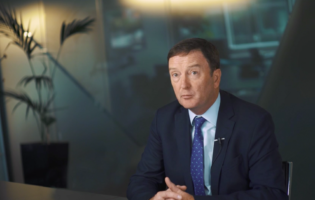Investment Outlook - Market Update

After a relatively challenging year in 2022, the first six months of 2023 saw positive returns for global equity markets. This, despite continued macro concerns with core inflation remaining stickier than hoped for, scant evidence to prove the most anticipated US recession had arrived and all compounded by the dramatic collapse of some US regional banks during the period. Central banks continued to raise interest rates and were also forced to further raise expectations for future increases. During the first six months, equity investors generally turned a blind eye to such fundamentals and market headlines were dominated with a new great ‘ hype’, investing in the wonders of Artificial Intelligence (AI) and so driving a new frenzy that pushed equity markets and technology in particular to new levels.
The macro scenario remains entirely consistent with our thesis since Autumn 2021, that a material ‘regime change’ lay ahead for global investors that may last years. We do expect that, inflation will remain stickier and at more elevated levels than the prior decade, which will keep interest rates and bond yields at higher and more normal levels. Such a ‘higher for longer’ interest rate environment should impact market returns and how markets behave. Despite a somewhat bizarre and very narrowly driven equity market during the first half, we continue to expect equity markets will rotate and refocus again on economic fundamentals over coming quarters.
From a macro perspective we are undoubtedly late cycle. We note that this economic cycle has proven itself more resilient than consensus expected. Economic recession has certainly been delayed and some investors who wonder if it will be avoided completely, despite material rate rises to-date! While evidence of a slowdown in manufacturing economies emerged this has been more than offset by strong service economy and labour market strength. Against this background, equity and bond markets will we believe, struggle to make progress. For the coming quarter, a large focus should re-emerge on company earnings releases. Equity investors will be particularly focused on actual earnings reports as well as how executives are describing their current and expected operating environment. Also, top line sales forecasts as well as cost items such as input prices, labour costs etc will be important.
The KBI investment team remain vigilant, focusing on both our top-down macro analysis and in particular a focus on bottom-up company analysis. While expecting the global market environment to remain uncertain and volatile, we will maintain a focus on building balanced portfolios with a mindset towards downside protection, as was the case during 2022.
Asset class outlook:
Equities
At an aggregate valuation equity markets are now more expensive, having re-rated again over the past 6 months. Market multiples have expanded in excess of earnings growth and are now at an aggregate level trading greater than historic averages, Regions such as European or Emerging Market equities present better value at present compared to the broad global market. We believe risks are to the downside with respect to consensus earnings forecasts for 2023 and especially should economic recession take hold.
During the most recent quarter, the market has rotated back to ‘in particular technology stocks, with AI related names dominating. We certainly believe that there are large areas of the broader equity market that have been overlooked where fundamentals have remained attractive. We expect that the rotation within equity markets that started during late 2020, will once again resume favouring for example, value rather than growth stocks and sectors, as well as higher dividend paying ones.
Bonds
Bonds as an asset class having experienced their worst year since 2008 during 2022, have continued to struggle so far in 2023. They have been volatile from quarter to quarter while reacting to market headlines, be they macro-economic or with respect to systemic issues such as the collapse of some US regional banks during the first quarter
Despite continued central bank rate rising and consistent with our regime change thesis, we remain in the higher for longer camp with respect to interest rates and bond yields. Even if rates are close to peak, the regime has changed. We believe bonds remain relatively poor value and while yields have risen materially since 2021, they have done so from historically low levels and may rise further driven by sticky inflation and a realisation that early rate cuts may not occur either.
Risk wise, we are monitoring corporate bond markets for any signs of distress at a company or indeed sectoral level, as the cost of funding has increased sharply and a less positive growth outlook lies ahead. At this stage corporate bond spreads are not indicating any material signs of stress and might therefore be vulnerable.
Disclaimers:
KBI Global Investors Ltd is regulated by the Central Bank of Ireland. Please note that, as of 1 January 2023, KBI Global Investors Ltd. has withdrawn from the UK’s Temporary Permissions Regime (the “TPR”) on the basis that the firm is availing of an exclusion available for overseas persons. KBI Global Investors (North America) Ltd is a registered investment adviser with the SEC and regulated by the Central Bank of Ireland. KBI Global Investors (North America) Ltd is a wholly-owned subsidiary of KBI Global Investors Ltd. ‘KBI Global Investors’ or ‘KBIGI’ refer to KBI Global Investors Ltd and KBI Global Investors (North America) Ltd.
Under MiFID II this is deemed marketing material and should not be regarded as investment research. This material is provided for informational purposes only and does not constitute an offer to sell or the solicitation of an offer to purchase any security, product or service including any group trust or fund managed by KBI Global Investors. The information contained herein does not set forth all of the risks associated with this strategy, and is qualified in its entirety by, and subject to, the information contained in other applicable disclosure documents relating to such a strategy. KBI Global Investors’ investment products, like all investments, involve the risk of loss and may not be suitable for all investors, especially those who are unable to sustain a loss of their investment.
PAST PERFORMANCE IS NOT NECESSARILY INDICATIVE OF FUTURE RESULTS.
This introductory material may not be reproduced or distributed, in whole or in part, without the express prior written consent of KBI Global Investors. The information contained in this introductory material has not been filed with, reviewed by or approved by any regulatory authority or self-regulatory authority and recipients are advised to consult with their own independent advisors, including tax advisors, regarding the products and services described therein. The views expressed are those of KBI Global Investors and should not be construed as investment advice. We do not represent that this information is accurate or complete and it should not be relied upon as such. Opinions expressed herein are subject to change without notice. The products mentioned in this Document may not be eligible for sale in some states or countries, nor suitable for all types of investors. Past performance may not be a reliable guide to future performance and the value of investments may fall as well as rise. Investments denominated in foreign currencies are subject to changes in exchange rates that may have an adverse effect on the value, price or income of the product. Income generated from an investment may fluctuate in accordance with market conditions and taxation arrangements. In some tables and charts, due to rounding, the sum of the individual components may not appear to be equal to the stated total(s). Additional information will be provided upon request. Performance for periods of more than 1 year is annualized. Gross results shown do not show the deduction of investment management fees. A client’s actual return will be reduced by the management fees and any other expenses which may be incurred in the management of an investment account. For example, a €1,000,000 investment with an assumed annual return of 5% with a management fee of 0.85% would accumulate €8,925 in fees during the first year, €48,444 in fees over five years and €107,690 in fees over ten years.




